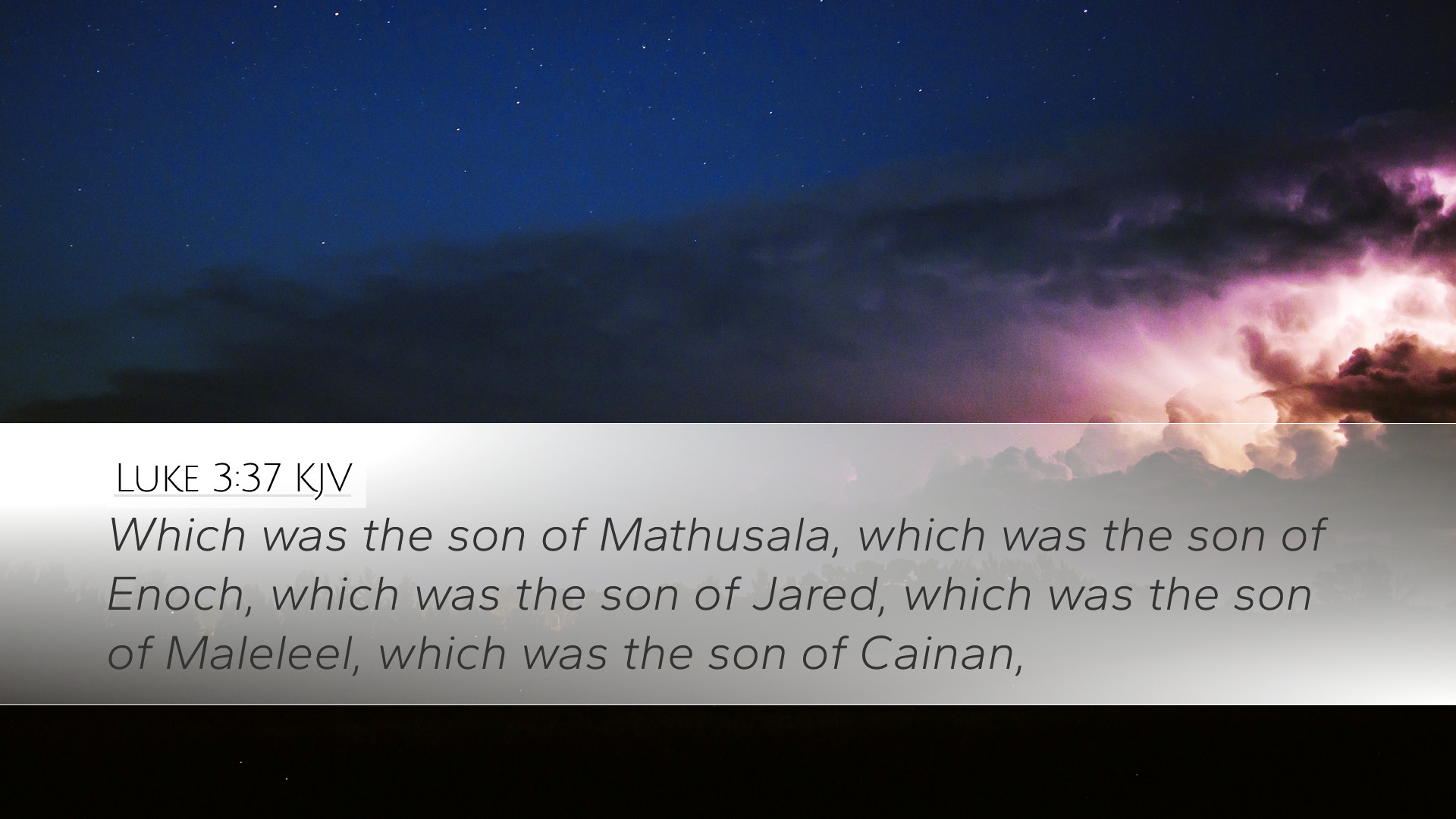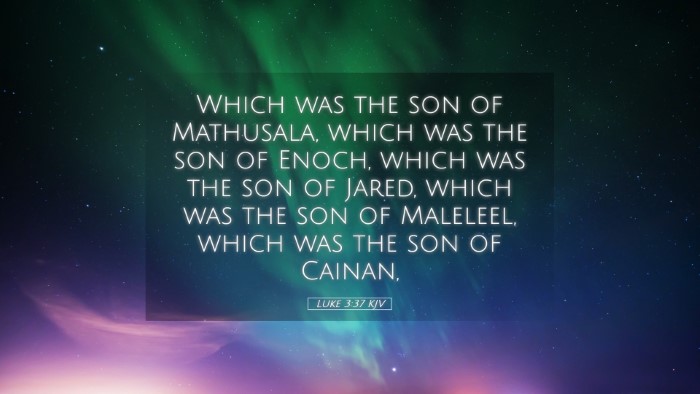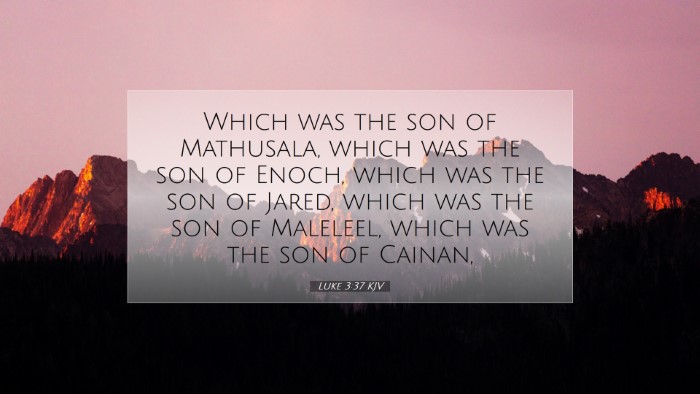Commentary on Luke 3:37
Luke 3:37 states:
"Which was the son of Methuselah, which was the son of Enoch, which was the son of Jared, which was the son of Maleleel, which was the son of Cainan."
Introduction
The genealogy presented in Luke 3 serves a significant purpose within the narrative of the Gospel. This verse, detailing a pivotal link in the chain of ancestry of Jesus Christ, reflects profound theological truths about Christ's humanity and divinity, and the fulfillment of Old Testament prophecies. The genealogical record traces the lineage through which the Savior enters the world, emphasizing His rightful place as the Messiah.
Exegesis of the Text
In this specific verse, Luke identifies Methuselah as an important figure in the genealogy of Christ. To understand its implications, we shall consider insights from various respected commentators.
Matthew Henry’s Commentary
Matthew Henry points out that the genealogy in Luke is distinct from that in Matthew because it emphasizes Jesus's divine origin. In discussing Methuselah, Henry notes that his name means "when he dies, it shall be sent," which prophetically hints at the great flood that occurred in Noah's lifetime, during which Methuselah died. This serves as a reminder of God's justice and mercy, encapsulating the nature of God throughout history.
Albert Barnes’ Remarks
Albert Barnes elaborates on the significance of Methuselah's long life, which is recorded as 969 years. Barnes highlights that Methuselah's longevity illustrates God's patience and mercy towards a sinful world. He emphasizes the thematic implications that every individual in the lineage leading to Christ had a role in God's great plan of redemption. The longevity also symbolically underscores the temporal connection between the old covenant and the new covenant brought forth in Christ.
Adam Clarke’s Insights
Adam Clarke provides a detailed historical context that enhances understanding of this genealogical listing. He notes the transitions between generations and how Luke's account uniquely leads down from Adam to Jesus. Clarke points out that the genealogy reflects God’s providential guidance throughout history. The mention of Enoch introduces the theme of righteousness and faith leading to divine favor, accentuating the importance of these attributes in the lineage leading ultimately to Christ.
Theological Implications
The genealogy serves as a theological bridge linking the Old Testament to the New Testament, fulfilling prophecies such as those found in Isaiah. The careful recording of names not only provides historical legitimacy but underscores the idea of God's covenant faithfulness. Commentators also emphasize the significance of linking Jesus back to patriarchs and figures of immense cultural and religious importance, thereby affirming His roles as both King and Redeemer.
Messianic Expectations
- The Line of David: The genealogy emphasizes Jesus's claim to the Davidic throne, crucial for affirming His identity as the Messiah.
- Universal Appeal: By connecting Jesus to both Jewish patriarchs and gentiles, this genealogy invites all of humanity to share in the promise of salvation.
Application for Today’s Believers
This passage encourages contemporary believers to reflect on their own spiritual lineage. Just as the genealogy of Christ was important to affirm His role in salvation, believers are called to recognize their identity in Christ through faith and the influence of those who have come before them in their spiritual journey.
The Importance of Heritage
Understanding one's heritage provides a grounded sense of belonging and purpose. The commentary suggests that believers should honor their spiritual mothers and fathers while also actively participating in the continuity of faith.
Christ as the Fulfillment of Prophecy
The lineage serves as a testament to the reality that Christ is the fulfillment of all Old Testament prophecies. This reality provides immense hope and assurance for believers today who are encouraged to rely on the promises of God, knowing they are rooted in a historic faith and transformative power.
Conclusion
Luke 3:37 links Jesus to a longstanding narrative of God’s interaction with humanity. The insights from public domain commentators provide depth to this passage, revealing both historical significance and theological implications. As the church seeks to act as a reflection of this divine lineage, it is vital to embrace the calling to connect one's life story with God's larger redemptive history.
References
- Matthew Henry's Commentary
- Albert Barnes' Notes on the Bible
- Adam Clarke's Commentary


